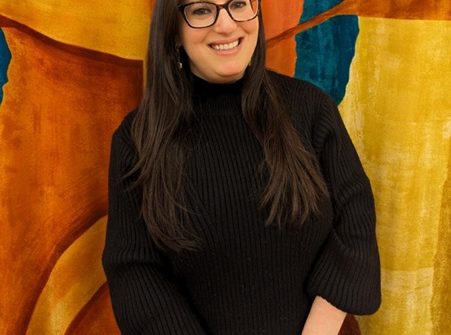I have a precious and diverse collection of haggadot. From an Ethiopian haggadah to haggadot that focus on modern heroes, a haggadah produced specially for American servicemen during the second world war, to an archaeological haggadah, each one speaks to different moments in Jewish thought and history, and my favourites also try to ensure that the seder speaks to us today about freedom, liberty and responsibility.
Growing up we always added in a prayer to our sedarim at home, one I suspect some of you used too – a prayer for the Refuseniks – Jews who were being denied their liberties by the Soviet Union, and whom my family were deeply engaged in trying to free. Some years ago I came across a quote by one of the most famous of those freed refuseniks, Natan Sharansky, that I included in our seder for discussion. He spoke about the challenges of freedom. In the USSR, he would go to the shops, and be able to buy one type of bread, one type of coffee. There was no freedom of choice, such as we enjoy in even our smallest supermarkets. However he wasn’t as critical of this as you might imagine. He writes that in his new life of freedom, he goes to the shops, and is totally overwhelmed by the choices. And these are not important choices, these are choices about tea and jam. They take up important space in his head, when he wants to be able to use his freedom for much more important thinking.
Around the same time I found another addition to the seder. An American charity created a supplement in the form of an alternative seder plate, a seder plate that addressed food poverty. It contained things like a packet of crisps, because often in areas of inner city poverty, it is cheaper to buy processed junk food than fresh produce. It contained a wilted piece of lettuce, because food poverty often means having to buy fruit and veg when it is about to turn bad, and so on. Every year I create an alternative seder plate to go alongside my regular one, with things like a chili pepper for climate change, a piece of cotton for the Uigher struggle, olives for peace in Israel and Palestine, and the now ubiquitous orange, often heralded as a hope for equality between genders but intended as a symbol of how fruitful the Jewish community can be when all are included regardless of gender or sexuality. I always try to include one symbol from the food poverty seder plate too. Freedom and liberty are not only about the Exodus, but are about us and our societies today.
Sharansky was given the blessing of freedom, even though sometimes it was overwhelming, but often, poverty is a part of what takes away people’s freedom of choices. As a community we know that many are struggling financially, and that hard choices are having to be made about what can be afforded. We have ways we can help if you find yourself in this situation, through our community needs fund. In 2013 the Joseph Rowntree Foundation published a report [1] that showed that “The 30 per cent of people with the lowest incomes are forced to choose between the basic necessities of modern life; they must decide which needs to neglect”. They also show that participation in social relationships, membership of organisations, trust in other people, ownership of possessions and purchase of services were all lower among people on low incomes.
We call Matza, among other things, the bread of poverty, we invite all who are hungry to come and eat as part of the seder. The same passage, however, reminds us we are still slaves, and hopes we will be free next year. That freedom is usually framed, in the Haggadah, as a hope that next year we will be in Jerusalem – a messianic vision that we will have arrived in an age where all are equal, free, living at peace. In Reform Judaism we believe this will come about through hard work and the cooperation of all of us together.
Pesach itself can be the cause of impoverishing members of the community, even when there isn’t a cost of living crisis going on. Many of us donated chametz to food banks, some of our members also support the Jewish equivalent of a foodbank, Gift, who have been helping those who can’t afford the basics to have a kosher Pesach. The torah sadly tells us there will always be those in need. Perhaps the question for our age is how we as a society want to tackle it – is it through individual donations, or through systemic changes.
There are many opportunities in our various haggadot to learn, to hear the variety of Jewish experience and theologies, and to remember that Judaism is never as simple as ‘on Pesach we do x, y or z’. But poverty is increasingly a reality for the Jewish community both here and abroad, and it is a part of our world that is reducing people’s freedoms and choices and where generational prosperity has for the first time been reversed, so that children are no longer more likely than not to be better off than their parents. Torah is very clear, we don’t just invite the hungry to come and eat, but we create a society where we do all we can to look after one another and share what we have. May our freedom mean freedom for all. Cain Yehi Ratzon, venomar, amen.



